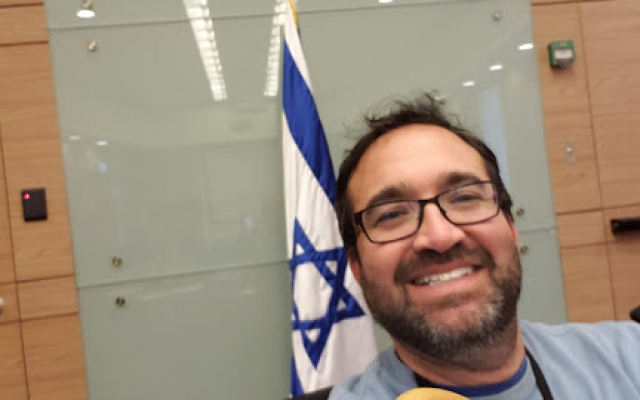The Heads and Tails of Forgiveness
Howie Slomka is a board member of Limmud Atlanta + Southeast.
When you hear the word “forgiveness,” what comes to mind? Specifically, is forgiveness something that you GRANT to others, or is it something that you SEEK for yourself?
The answer depends on context and on who is asking whom. But more, it depends on the subject of the query, and on the innermost thoughts and feelings of that listener at the moment in question. Whether forgiveness is something we seek or something we grant, it requires a much deeper look into our own psyche. But forgiveness is not complete unless we consider and engage in the act from both perspectives.
When two people face each other in a conversation centered on forgiveness, it is likely that they recognize immediately who is the Seeker and who is the Giver. This essay does not address the concept of saying “me too” to an act of teshuva, even though that concept alone is worthy of many pages. Instead, when Jews engage in teshuva this month, we should all seek to be both seekers and granters of forgiveness, and with varied partners. In this reciprocal paradigm, we can not only better understand the true meaning of forgiveness, but we can become catalysts in furthering the reach of forgiveness throughout our community.
If you have only sought forgiveness this year, then seek out and be gracious with opportunities to grant forgiveness as well. And if you have been generous with your offers to forgive, then find someone from whom you must seek a degree of forgiveness . . . and ask for it.
As Jews, our most central prayer is the Shema. “Hear oh Israel” we are commanded, and yet we are also commanded to speak those very words. Our mitzvah of the Shema is not complete until or unless we both HEAR and SPEAK. We must be passive and active participants; to do one without the other is to remain unfulfilled. So, too with the asking and granting of forgiveness.
Limmud provides another example of how an act is both complete and enhanced when experienced from seemingly competing perspectives. At our weekend of Jewish learning (every Labor Day in beautiful Ramah Darom) our teachers are also learners, and our learners are encouraged to teach. Only when one reaches that rewarding moment of simultaneous teaching and learning can she embrace the true essence of education. Seeking and granting forgiveness are just as connected as teaching and learning.
This Elul, pay it forward with forgiveness. In the aggregate, if each granter of forgiveness then becomes a seeker of forgiveness from another, we will construct a wonderful cycle of forgiveness. A chain reaction of teshuva, reaching back to Azazel. Together, we can make 5780 not only a year of happiness, peace and prosperity, but one of forgiveness. Of learning and teaching; of hearing and speaking; of seeking and granting forgiveness.
L’Shana Tova U’Metuka.




comments